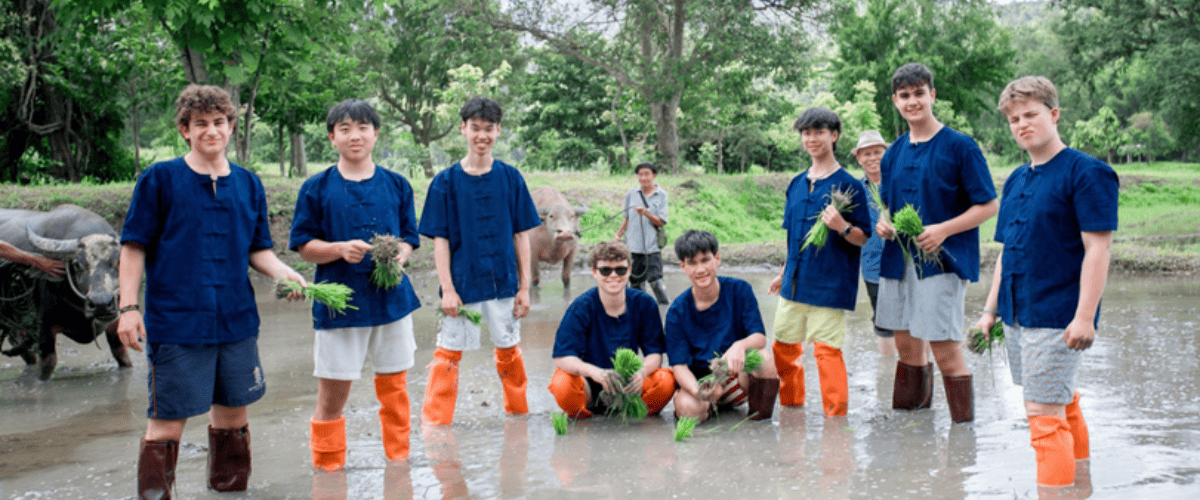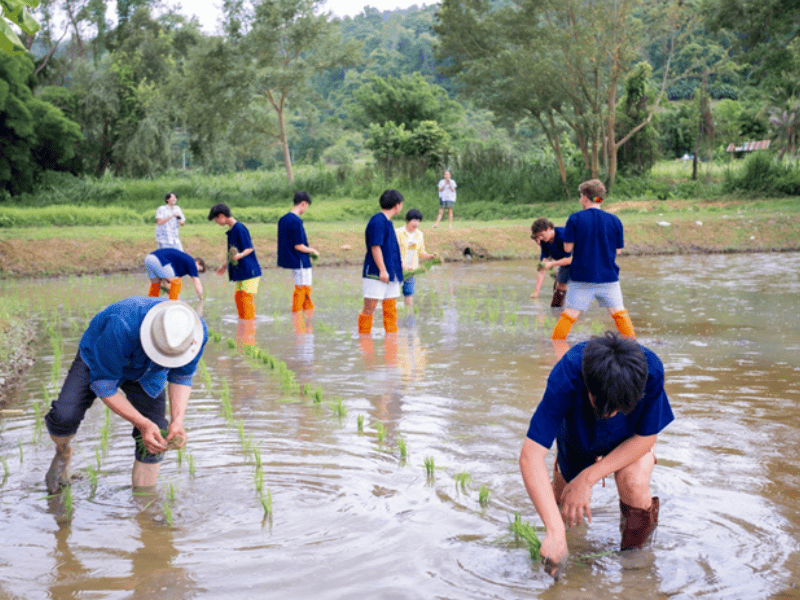

Tackling Climate Change in Thailand
This summer, EcoVentures — a charity co-founded by myself and a friend — undertook a significant environmental project in Thailand. Our mission was driven by the pressing environmental challenges facing the country, particularly severe pollution in Bangkok and widespread deforestation.
With the enthusiastic support of my classmates from Winchester College - Jad, Jason, Pran, Hugo, Lachan, Aron and Jack, we worked collaboratively to address these issues and promote sustainable practices.
The Main Initiatives
LOW CARBON RICE
Our first initiative, The Low Carbon Rice Project, aimed to cut down methane emissions from rice farming, a significant source of greenhouse gases in Thailand.
Methane, which is over 25 times more effective than carbon dioxide at trapping heat in the atmosphere, is released during traditional rice farming when fields are kept flooded. To tackle this, EcoVentures introduced farmers to the Alternate Wetting and Drying (AWD) method.
This innovation allows fields to dry between waterings, reducing methane emissions by up to 30% and conserving precious water resources. In collaboration with the Paluang Tribe in Northern Thailand, we produced eco-friendly organic rice, providing both environmental benefits and boosting the local economy.

Helping the Paluang Tribe in Northern Thailand
THE TREES 5000 PROJECT
In Udon Thani, a city in northeastern Thailand, we launched the Trees 5000 Project to combat deforestation, which contributes to approximately 11% of global greenhouse gas emissions annually.
Our goal is to plant 5,000 trees to help restore local ecosystems, reduce soil erosion, and provide habitats for wildlife. Each tree can absorb up to 48 pounds of carbon dioxide per year, making reforestation a crucial step in mitigating climate change.
Through our partnership with Ecomatcher, an organisation that helps companies integrate tree planting into their businesses, donors can track their trees' growth and connect with those planting them, fostering a global community of environmental stewards.
ROOFTOP FARMING: GREENING BANGKOK
In Bangkok, EcoVentures tackled urban pollution through our Rooftop Farming project.
By converting underused rooftops into organic vegetable gardens, we addressed the dual issues of food waste and urban heat. Bangkok generates thousands of tons of food waste daily, much of which ends up in landfills. By turning this waste into compost, we enrich our rooftop gardens and reduce methane emissions from decomposing organic matter in landfills.
Our gardens, located in places like Central World, a shopping complex in Bangkok, produce pesticide-free crops for local markets, demonstrating the potential for urban agriculture to enhance city environment.
The Future
This summer marked a pivotal moment for EcoVentures. Motivated by Thailand's urgent environmental challenges, we worked alongside local farmers to support sustainable practices, reforested critical areas, and introduced urban green solutions.
Looking forward, EcoVentures is committed to expanding our projects and continuing this important environmental work. This summer was just the start, and with ongoing support and collaboration, we aim to make a significant impact on Thailand's environmental landscape.

 Head back to stories
Head back to stories